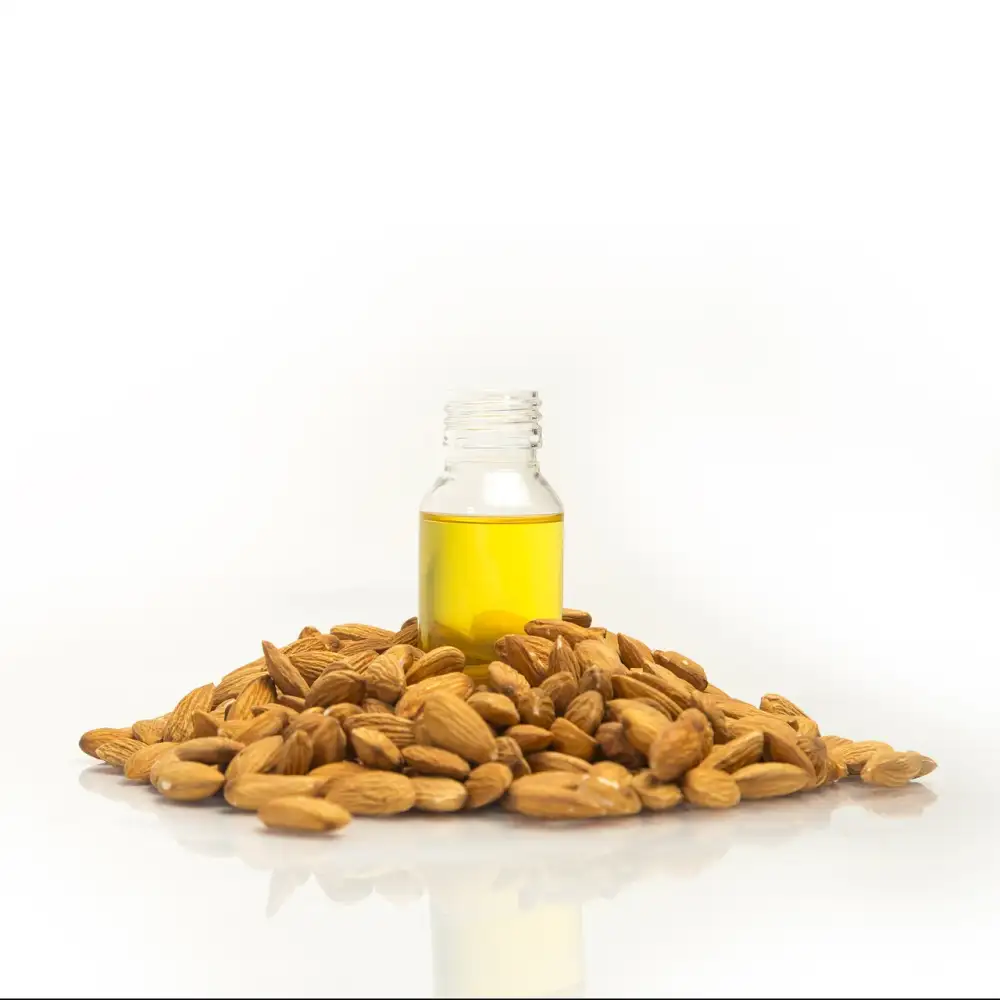Unlocking the Health Benefits of Seed Oils: Your Guide to Nourishing and Nutritious Cooking Oils

- Understanding the Nutritional Composition of Seed Oils
- The Role of Seed Oils in Promoting Heart Health
- Seed Oils and their Impact on Cholesterol Levels
- Managing Weight and Boosting Metabolism with Seed Oils
- The Anti-inflammatory Properties of Seed Oils
- Seed Oils and their Potential in Preventing Chronic Diseases
- Incorporating Seed Oils into a Balanced Diet for Optimal Health
- Choosing the Right Seed Oil for Different Cooking Methods
Seed oils, derived from various seeds such as flaxseed, sunflower, sesame, and pumpkin, have been used for centuries for their health benefits. These oils are rich in essential fatty acids like omega-3 and omega-6, which play a crucial role in maintaining overall health. They are also packed with vitamins and minerals that support immune function and promote healthy skin and hair. In addition to their nutritional value, seed oils offer numerous health benefits, including reducing inflammation, improving heart health, and preventing chronic diseases. Incorporating these oils into your cooking can be a simple yet effective way to enhance the nutritional value of your meals and support your overall well-being. So let's dive deeper into the world of seed oils and unlock their potential for nourishing and nutritious cooking.
Understanding the Nutritional Composition of Seed Oils
Seed oils are known for their rich nutritional composition, making them a valuable addition to any diet. These oils are derived from various seeds such as sunflower, sesame, flaxseed, and chia seeds. They are packed with essential nutrients like omega-3 and omega-6 fatty acids, vitamin E, and antioxidants.
Omega-3 fatty acids found in seed oils have been linked to numerous health benefits, including reducing inflammation and improving brain function. Omega-6 fatty acids play a crucial role in maintaining healthy skin and hair, as well as supporting proper brain function.
Vitamin E is another important nutrient found in seed oils. It acts as a powerful antioxidant that helps protect cells from damage caused by free radicals. This can help reduce the risk of chronic diseases such as heart disease and cancer.
Antioxidants present in seed oils also contribute to their nutritional value. These compounds help neutralize harmful free radicals in the body and prevent oxidative stress, which is associated with aging and various diseases.
Understanding the nutritional composition of seed oils allows us to harness their health benefits effectively. By incorporating these oils into our cooking and daily meals, we can nourish our bodies with essential nutrients that promote overall well-being.
The Role of Seed Oils in Promoting Heart Health
Seed oils play a crucial role in promoting heart health. They are rich in monounsaturated and polyunsaturated fats, which can help reduce bad cholesterol levels and increase good cholesterol levels. These healthy fats also help to lower blood pressure and decrease the risk of heart disease. Additionally, seed oils contain omega-3 fatty acids, which have been shown to reduce inflammation and improve overall cardiovascular health. Incorporating seed oils into your diet can be an effective way to support a healthy heart and maintain optimal cardiovascular function.
Seed Oils and their Impact on Cholesterol Levels
Seed oils have been found to have a positive impact on cholesterol levels, making them a valuable addition to a heart-healthy diet. These oils are rich in monounsaturated and polyunsaturated fats, which have been shown to help lower LDL (bad) cholesterol levels while increasing HDL (good) cholesterol levels. This is important because high levels of LDL cholesterol can increase the risk of heart disease, while higher levels of HDL cholesterol can help protect against it. By incorporating seed oils into your cooking and meal preparation, you can take steps towards maintaining healthy cholesterol levels and promoting cardiovascular well-being.
Managing Weight and Boosting Metabolism with Seed Oils
Seed oils can play a significant role in managing weight and boosting metabolism. These oils are rich in healthy fats, which can help increase feelings of satiety and reduce cravings. Furthermore, the omega-3 fatty acids found in certain seed oils have been shown to enhance fat burning and improve insulin sensitivity, both of which are crucial for maintaining a healthy weight. Incorporating seed oils into your diet can provide a natural way to support your weight management goals and promote a faster metabolism.
The Anti-inflammatory Properties of Seed Oils
Seed oils are not only rich in essential fatty acids, but they also possess powerful anti-inflammatory properties. These oils contain compounds such as omega-3 and omega-6 fatty acids, which have been shown to reduce inflammation in the body. Chronic inflammation has been linked to various health conditions, including heart disease, arthritis, and certain types of cancer. By incorporating seed oils into your diet, you can help combat inflammation and promote overall well-being.
Seed Oils and their Potential in Preventing Chronic Diseases
Seed oils have shown great potential in preventing chronic diseases. The high levels of antioxidants found in seed oils help to combat oxidative stress, which is a major contributor to the development of chronic diseases such as cancer, diabetes, and cardiovascular disease. These antioxidants work by neutralizing harmful free radicals in the body, reducing inflammation, and protecting cells from damage. Additionally, seed oils are rich in omega-3 fatty acids, which have been linked to a reduced risk of chronic diseases. Incorporating seed oils into your diet can be a simple and effective way to promote long-term health and prevent the onset of these conditions.
Incorporating Seed Oils into a Balanced Diet for Optimal Health
To reap the maximum health benefits of seed oils, it is crucial to incorporate them into a balanced diet. Here are some tips on how to do so:
1. Use seed oils as a base for salad dressings: Instead of using store-bought dressings that are often high in unhealthy fats and additives, make your own using seed oils like olive oil or flaxseed oil. These oils not only add flavor but also provide essential nutrients.
2. Cook with seed oils: When sautéing vegetables or stir-frying dishes, opt for seed oils like sesame oil or sunflower oil instead of butter or vegetable shortening. These oils can withstand high heat without breaking down and retain their nutritional value.
3. Drizzle seed oils over cooked dishes: After preparing a meal, add a drizzle of seed oil such as pumpkin seed oil or hempseed oil over the top. This not only enhances the taste but also adds valuable nutrients to your plate.
4. Include seeds in your meals: Incorporate whole seeds like chia seeds, flaxseeds, or sesame seeds into your recipes. These seeds are packed with healthy fats and can be ground and used as an alternative to traditional cooking oils.
Remember, moderation is key when incorporating seed oils into your diet. While they offer numerous health benefits, they are still calorie-dense, so be mindful of portion sizes. By including a variety of seed oils in your meals, you can harness their power for optimal health and well-being.
Choosing the Right Seed Oil for Different Cooking Methods
When it comes to cooking with seed oils, it's important to choose the right oil for different cooking methods. Some oils have a low smoke point and are better suited for light sautéing or salad dressings, while others can withstand high heat and are ideal for frying or baking.
For high-heat cooking such as deep-frying or stir-frying, oils with a high smoke point like avocado oil, peanut oil, or sesame oil are excellent choices. These oils can withstand the heat without breaking down and releasing harmful compounds.
For medium-heat cooking such as sautéing or roasting, oils like olive oil, sunflower oil, or grapeseed oil work well. They have a moderate smoke point and add a delicious flavor to your dishes.
If you're looking for an oil to use in salad dressings or drizzling over cooked vegetables, consider using flaxseed oil or walnut oil. These oils have a low smoke point but are packed with essential fatty acids and add a nutty flavor to your dishes.
It's also important to consider the flavor profile of the seed oil when choosing one for your cooking. Some oils have a mild taste that won't overpower your dish, while others have a stronger flavor that can enhance certain recipes.
Ultimately, the key is to experiment with different seed oils and find the ones that best suit your taste preferences and cooking needs. By choosing the right seed oil for each cooking method, you can maximize both the health benefits and flavors in your homemade meals.
In conclusion, seed oils offer a wide range of health benefits that can greatly contribute to a healthier lifestyle. From promoting heart health and managing cholesterol levels to boosting metabolism and preventing chronic diseases, these oils are truly a powerhouse of nutrition. By incorporating different seed oils into your daily cooking and meal preparation, you can unlock their nourishing properties and enhance the flavor of your dishes. So why not start harnessing the power of seed oils today and embark on a journey towards better health and well-being?
Published: 17. 12. 2023
Category: Health



